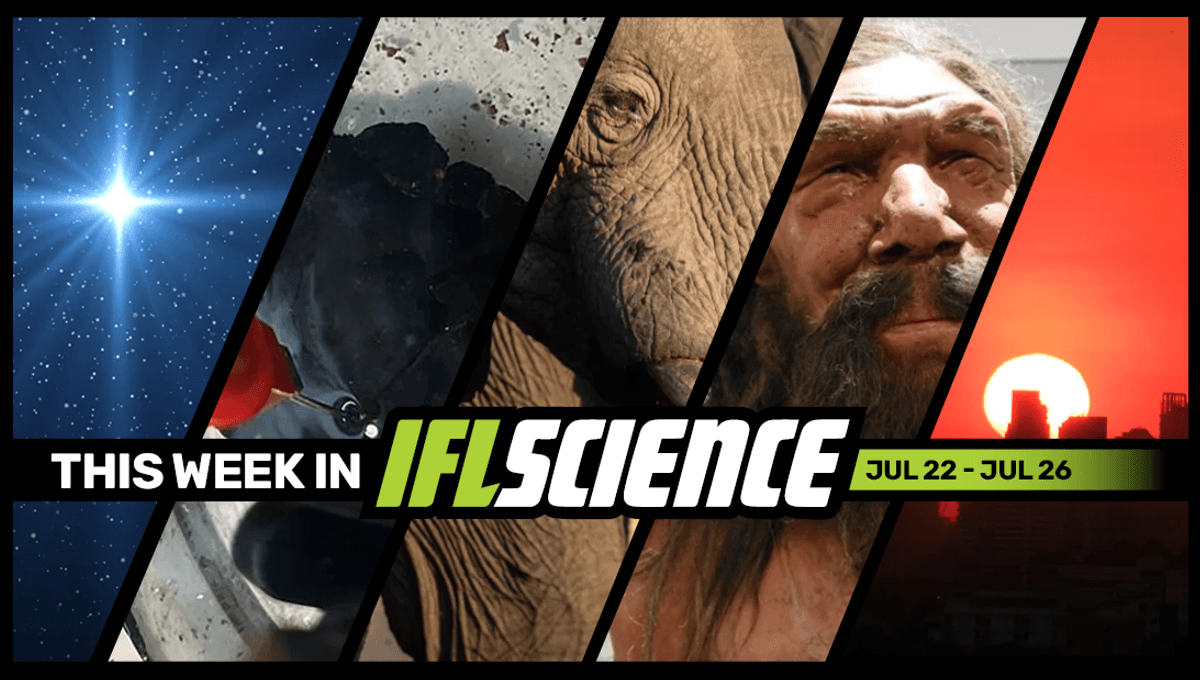
This week, “dark oxygen” appears to be made from natural batteries found on the deep ocean floor, the most complete Neanderthal skeleton ever found still can’t be excavated, and the record for the hottest day has been smashed twice this week. Finally, we ask which events animals would win if they could compete in the Olympics.
Subscribe to the IFLScience newsletter for all the biggest science news delivered straight to your inbox every Wednesday and Saturday.
NASA Will Soon Launch An Artificial Star Into Orbit Over The USA
When you look up at the 200 billion trillion (ish) stars, you probably don’t think about adding another – but in a first-of-its-kind mission, NASA aims to launch an artificial “star” over the USA before the end of the decade. The Landolt mission will place a calibrated light source into orbit at a distance of 35,785 kilometers (22,236 miles) from the Earth, appearing as a new star in the sky. Read the full story here
Natural Batteries On The Deep Ocean Floor Appear To Be Making “Dark Oxygen”
The discovery of a source of deep-sea oxygen has shocked marine researchers and could force a radical rethink across several areas of science, including the quest for extraterrestrial life. The oxygen is produced not by photosynthesis, but by minerals 4,000 meters down on the ocean floor. Read the full story here
Barbershop Elephants: First-Ever “Let’s Go” Recordings Reveal Incredible Harmonies
A world-first recording has revealed the harmonious way male African elephants signal when it’s time to move on by vocalizing a bit like a barbershop quartet. One bull begins the call to action, and one by one, the others join in to create a sonorous, infrasonic chorus that rumbles across the landscape. Read the full story here
The Most Complete Neanderthal Skeleton Ever Found Still Can’t Be Excavated
Deep within a cave in southern Italy, a strangely atypical Neanderthal man has been stuck upside down for around 150,000 years. Named Altamura Man, this remarkable skeleton represents one of the most spectacular human fossils ever discovered and could help to clear up some of the mysteries surrounding our evolution as a species – if only we could get the old bloke out. Read the full story here
The Record For Hottest Day Ever Recorded Has Been Smashed Twice This Week
On Sunday, July 21, the hottest day since records began in 1940 was reported, only for the next day, Monday, July 22 to break that record. That day, the planet had an average temperature of 17.15°C (62.87°F), only fractionally hotter than the previous record on July 6, 2023, but the heat record being broken twice in the same month is not good. Read the full story here
TWIS is published weekly on our Linkedin page, join us there for even more content.
Feature of the week:
If Animals Could Compete In The Olympics, Which Events Would They Win?
When they were created, the Olympics were only open to amateurs, a restriction dropped decades ago. Nevertheless, at least one form of discrimination still stands – you need to be a member of the species Homo sapiens to compete (equestrian events aside). With the Paris games upon us, it’s time to consider what would happen if we made the ultimate sporting contest a true event for the entire planet. Read the full story here
More content:
Have you seen our e-magazine, CURIOUS? It’s just turned 2! Issue 24 July 2024 is available now. Check it out for exclusive interviews, book excerpts, long reads, and more.
PLUS, season 4 of IFLScience’s The Big Questions Podcast has begun. So far we’ve asked “Why Are We The Only Surviving Human Species?”, “How Is Climate Change Impacting Our Health?”, and “Is Evolutionary Biology Sexist?”
Source Link: NASA Will Soon Launch An Artificial Star Into Orbit, First-Ever “Let’s Go” Recordings From Elephants, And Much More This Week